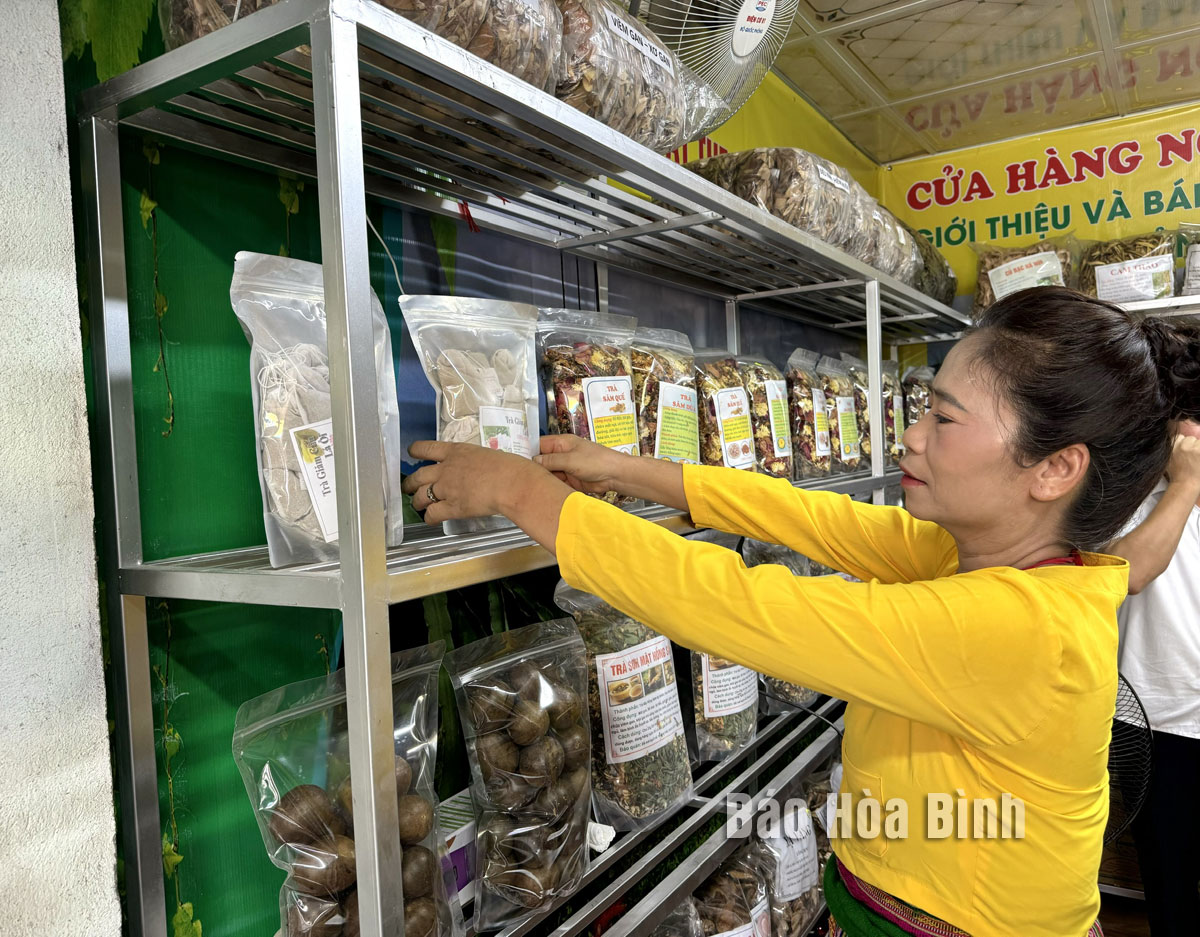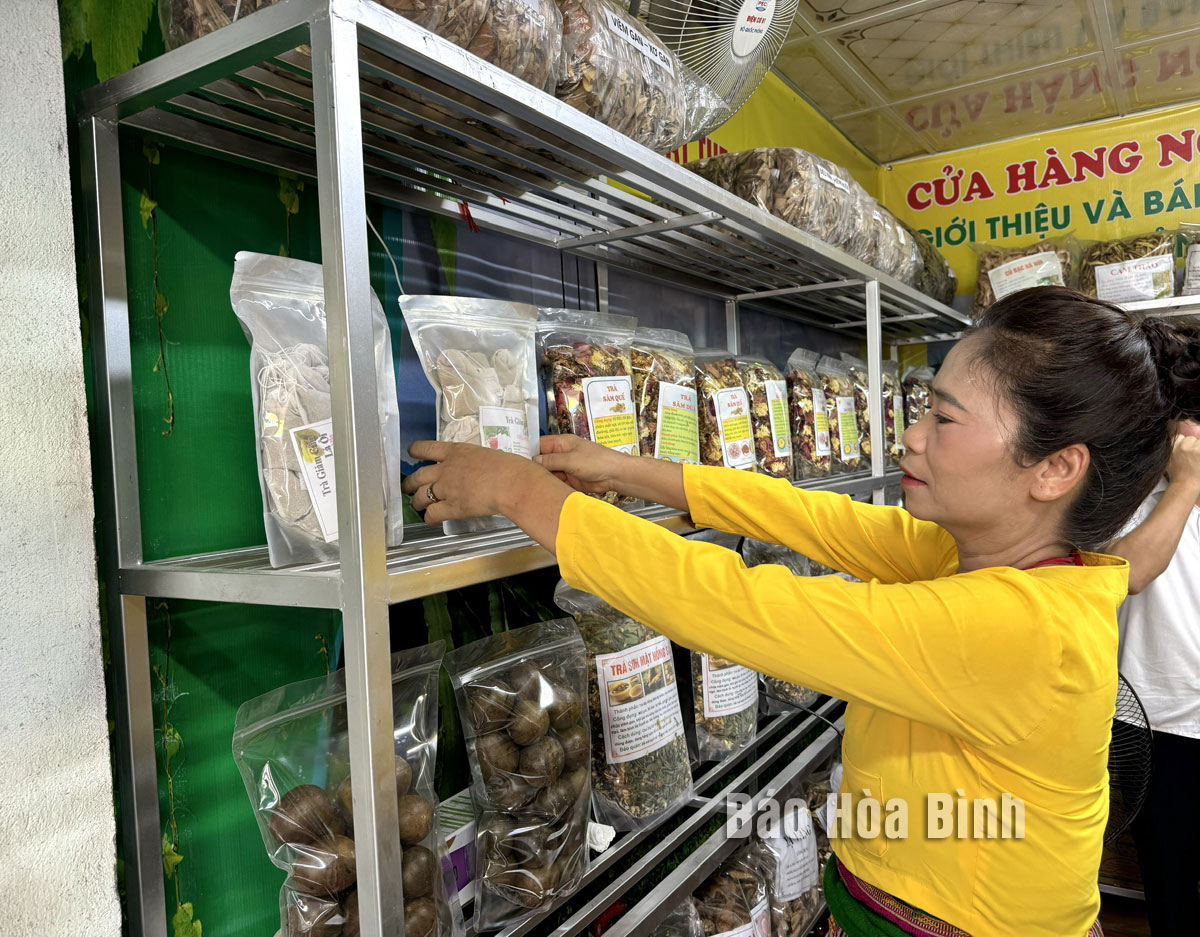
Farmers' associations at all levels in Hoa Binh have focused on supporting farmers in developing OCOP products, introducing agricultural products on e-commerce platforms, and promoting the emulation movement to develop the collective economy and the building of new-style cooperatives. These efforts aim to support and accompany associations' members in promoting and consuming their agricultural products.
Ha Hoan safe farm produce store in Bo town (Kim Boi district) provides clean and safe products, and OCOP products meeting VietGAP standards produced by farmers in the district and neighbouring districts.
The associations have promoted production linkage and consumption connection of agricultural products and food for farmers. The provincial Farmers' Association has directed the provincial centre to support farmers to coordinate with relevant agencies to enhance activities to promote, introduce, and consume products for farmers.
Many coordination programmes have been implemented to support members in selling agricultural products and introducing farm produce on e-commerce platforms.
The association has also assisted the establishment of two safe farm produce and food stores in Tan Lac and Kim Boi districts, contributing to promoting and selling safe, VietGAP, organic, and OCOP products produced by local farmers.
As a result, 773 households in Hoa Binh had accounts on e-commerce platforms. The provincial Department of Culture, Sports and Tourism collaborated with relevant agencies and units to strengthen the introduction of OCOP products and other typical farm produce of Hoa Binh at the 20th Ho Chi Minh City Tourism Festival with more than 100 VietGAP, organic, and OCOP products exhibited at the event.
According to data from the Hoa Binh Provincial Party Committee, the industrial production index for the first six months of 2025 is estimated to have increased by 20% compared to the same period last year. This marks the highest year-on-year growth rate for this period since 2020.
In the first six months of 2025, Hoa Binh province’s export turnover was estimated at 1.145 billion USD, marking an 18.11% increase compared to the same period in 2024. Import turnover was estimated at $ 804 million, a 17.15% increase, which helped the province maintain a positive trade balance.
The lives of the ethnic minority farmers in Tan Lac district have gradually improved thanks to the new directions in agricultural production. This is a testament to the collective strength fostered through the professional associations and groups implemented by various levels of the district’s Farmers’ Union.
With the motto the "product quality comes first,” after nearly one year of establishment and operation, Muong village’s Clean Food Agricultural and Commercial Cooperative, located in Cau Hamlet, Hung Son Commune (Kim Boi district), has launched reputable, high-quality agricultural products to the market that are well-received by consumers. The products such as Muong village’s pork sausage, salt-cured chicken, and salt-cured pork hocks have gradually carved out a place in the market and they are on the path to obtaining the OCOP certification.
In the past, the phrase "bumper harvest, rock-bottom prices" was a familiar refrain for Vietnamese farmers engaged in fragmented, small-scale agriculture. But today, a new spirit is emerging across rural areas of Hoa Binh province - one of collaboration, organisation, and collective economic models that provide a stable foundation for production.
Maintaining growing area codes and packing facility codes in accordance with regulations is a mandatory requirement for agricultural products to be eligible for export. Recently, the Department of Agriculture and Environment of Hoa Binh province has intensified technical supervision of designated farming areas and packing facilities to safeguard the "green passport" that enables its products to access international markets.



